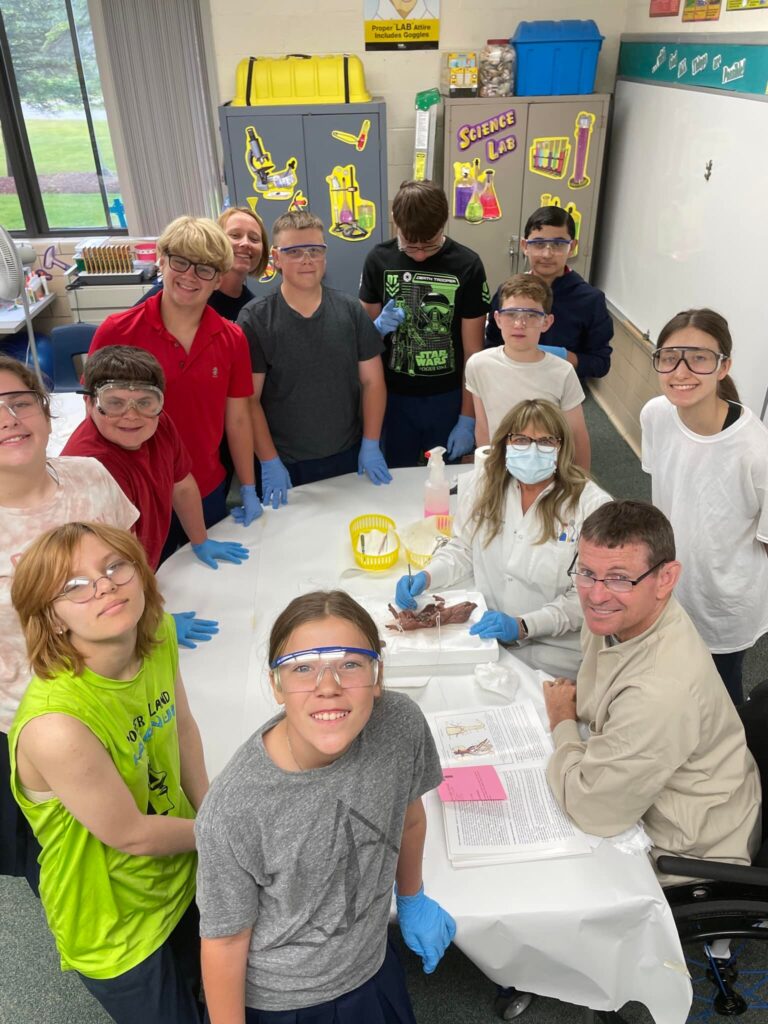Mission Statement
Nurturing minds, strengthening faith, fostering virtue
Our Lady of the Lake Regional Catholic School unites with family and community to create a dynamic academic environment rooted in the Eucharist and the Word, cultivating God-given talents.

Instructional strategies take on a more meaningful role for both students and the teacher:
- They produce greater cooperation.
- They allow students to learn from each other through collaboration, peer tutoring, and a variety of experiences and activities.
- They give students responsibility and independence in both learning and behavior.
- There is more opportunity to provide choice to the student in different areas of learning that reflect learning-style differences.
- They allow continuous education through the use of learning activities, small group instruction, and individual pacing.
- They allow for a variety of parental involvement in learning experiences both in and out of the classroom.
- They encourage student responsibility and ownership of the learning environment.
- They teach goal-setting and responsibility from an early age.
- They build leadership skills in all students.
Education Philosophy
Multi-Age Classrooms
Experiencing the educational difference and reaping the academic and leadership rewards of a Multi-age Classroom begins with knowing a multi-age educational program has a different face and structure than a traditional classroom. It is a union of organizational structure and unique combinations of teaching and learning strategies. The way learning occurs is made possible by the multi-age structure.

The academic and leadership benefits of a
multi-age classrooms include:
- Flexibility in the grouping of children according to need, ability, or interest, not just by age.
- Problems or anxiety associated with a yearly transition from one grade to another is overcome. The teacher has a nucleus of students who are already knowledgeable in the details of classroom organization that are ready to move forward with learning while welcoming and helping new class members join in.
- There is a stronger student-teacher-parent relationship as it develops over a longer period of time; therefore, students receive even greater support for their success in school. A more natural learning environment is established.
- Students are more able to work at their own pace. Their learning program is able to be adjusted over time to better fit their needs while striving for their personal achievement and academic success.
- The teacher is more knowledgeable of where students have started and is able to adjust their learning program over time as well as offer greater support.
- Older students’ educational foundation gains in both academics and the quality of leadership and responsibilities they develop.
- Younger students are stimulated intellectually by older students.
- Children have a broader social experience with increased opportunities to lead and follow, collaborate, and make stable peer relationships.
